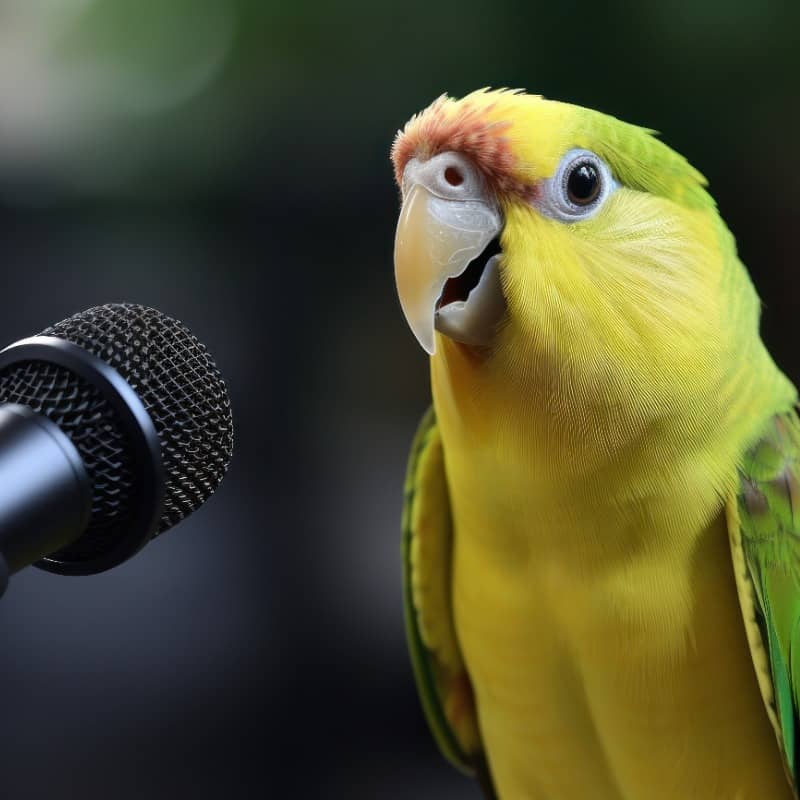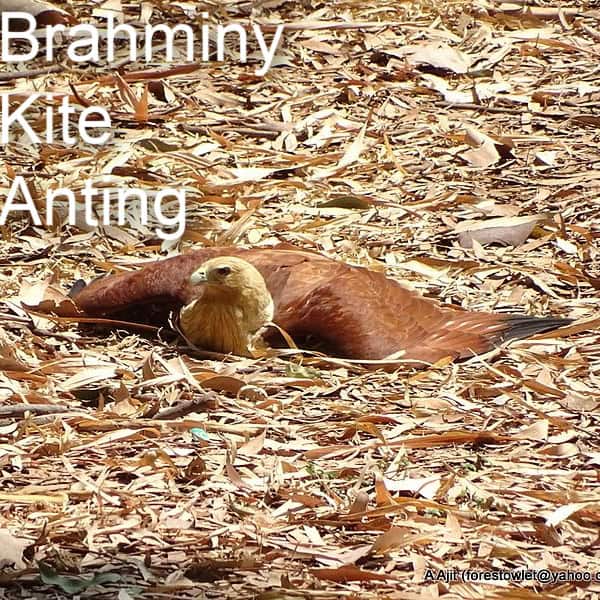Last Updated on by Mitch Rezman
The ability to teach a parrot to talk is one of the most fascinating aspects of owning these intelligent and charismatic birds. However, it is important to understand that not every parrot will develop the ability to mimic human speech, and outcomes can vary wildly—even among parrots of the same species.
This unpredictability makes teaching a parrot to talk a “dice shot,” as success depends on a combination of factors, including the individual bird’s personality, species, environment, and the trainer’s approach.
Why Do Parrots Talk?
Parrots are known for their vocal mimicry, which is a natural behavior in the wild.
In their natural habitats, parrots use their vocal abilities to communicate with their flock, warn of dangers, and bond with one another. Mimicking sounds is an extension of this behavior, and in captivity, parrots often view their human caretakers as part of their flock. By mimicking human speech, parrots are essentially trying to bond and communicate with their human companions.
Species Matters, But It’s Not Everything
Certain parrot species are more likely to talk than others. African Grey parrots, for instance, are widely regarded as the best talkers, capable of learning hundreds of words and even using them in context.
Amazon parrots, Indian Ringnecks, and Budgerigars (budgies) are also known for their impressive talking abilities. On the other hand, some species, such as cockatiels or lovebirds, are less likely to develop extensive vocabularies, although they may still mimic simple sounds or whistles.
Even within the same species, however, there is no guarantee that a particular bird will talk. Some African Greys may never utter a word, while a budgie—typically considered a “less advanced” talker—might surprise its owner with an extensive vocabulary.
This variation highlights the individuality of each parrot and the role of factors beyond species alone.
Personality and Individual Differences
Just like humans, parrots have unique personalities that influence their behavior and learning abilities. Some parrots are naturally curious and eager to interact with their environment, making them more inclined to mimic sounds and words. Others may be more reserved or disinterested in vocal mimicry, even if they are otherwise intelligent and social.
Age can also play a role. Younger parrots are generally more receptive to learning new behaviors, including speech. However, older parrots can still learn to talk with patience and consistent training.
The Role of Environment and Training
The environment in which a parrot is raised plays a significant role in its ability to talk. Parrots that are exposed to frequent interaction, consistent verbal stimulation, and a positive learning environment are more likely to mimic human speech. Birds that are isolated or not spoken to regularly are less likely to develop this skill.
Training techniques also matter. Positive reinforcement, such as offering treats or praise when the parrot mimics a word, is key to encouraging speech. Repetition is critical, as parrots learn by hearing words and sounds repeatedly over time. Owners who spend time talking to their parrots and engaging them in conversation are more likely to see results.
The Element of Luck
Despite the best efforts of an owner, whether a parrot learns to talk ultimately comes down to a bit of luck. Even with the right species, environment, and training, some parrots simply won’t talk.
This unpredictability is what makes teaching a parrot to talk a “dice shot.” It’s important for owners to manage their expectations and appreciate their parrot for its unique personality and other talents, even if it doesn’t develop a talking ability.
Conclusion
Teaching a parrot to talk is a rewarding but unpredictable endeavor. While certain species are more likely to mimic human speech, individual differences, environmental factors, and training methods all play a role in determining whether a parrot will talk.
Ultimately, the ability to teach a parrot to talk is a delightful gamble that requires patience, consistency, and a deep appreciation for the bird’s individuality. Whether or not a parrot becomes a talker, its companionship and intelligence make it a cherished addition to any home.
Written by Mitch Rezman and the Windy City Parrot content team
Author Profile
Latest entries
 Feeding Exotic BirdsDecember 29, 2025How to Switch or Convert Your Bird From Seeds to Pellets: Real-Life Case Studies and Practical Guidance
Feeding Exotic BirdsDecember 29, 2025How to Switch or Convert Your Bird From Seeds to Pellets: Real-Life Case Studies and Practical Guidance Feeding Exotic BirdsDecember 16, 2025A Practical, Budget-Smart Guide to Feeding Birds Well
Feeding Exotic BirdsDecember 16, 2025A Practical, Budget-Smart Guide to Feeding Birds Well Bird EnviornmentsDecember 7, 2025Understanding Budgie Cage Bar Orientation: Myths, Realities & Practical Solutions for Vertical-Bar Bird Cages
Bird EnviornmentsDecember 7, 2025Understanding Budgie Cage Bar Orientation: Myths, Realities & Practical Solutions for Vertical-Bar Bird Cages Feeding Exotic BirdsDecember 5, 2025How Dr. T.J. Lafeber Rewrote the Future of Pet Bird Nutrition
Feeding Exotic BirdsDecember 5, 2025How Dr. T.J. Lafeber Rewrote the Future of Pet Bird Nutrition



